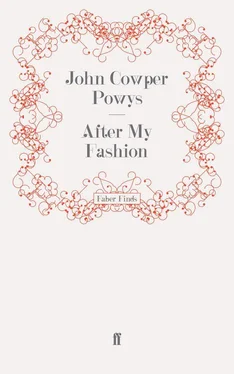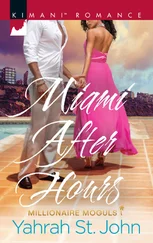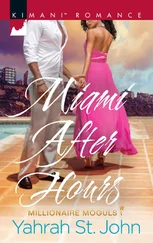What he, Richard Storm, was really ‘after’ now, what he was in search of, what he actually wanted to express, in this new poetry he intended to write, he himself could hardly have said. But whatever it was, it was something that, even in its cloudy and embryonic fumblings after a living identity, was strong enough to break up and shatter to bits his contentment with his previous existence.
The hard, clear-cut, artificial fragilities of his French friends seemed only to fret and tease him now. A certain craving for air, for space, for large and flowing movements, for unbounded horizons, had suddenly come upon him and had ruined the peace of his days as he returned to his old haunts. He found himself weary of his old critical subtleties. Some queer unexpected stirring in his soul seemed driving him forth into a world larger and more onward-looking, if less clear cut and complete, than the one he had dwelt in contentedly for so long.
He found himself trying to visualize Russia and the exciting world-shaking experiments there; and it was as if he were gazing into some turbulent cosmic workshop where the world-gods, in heat and sweat and dust and smoke, were hammering out a new groove for the great wheel.
Elise had certainly upset his old life — the war and Elise! Those two together had taken him by the hair of his head and pulled him up by the very roots out of his old pastures.
He had run away from Paris without a single day of farewells. Never before in his life had he fled from an adventure. Well! he must not think of that any more; not any more; lest he curse himself as a cowardly fool. Ah, those eyes, those hands, that unequalled woman’s body! Was it really some actual Socratic demon that had snatched him away from her and hurled him into the train for Havre just when his chances with her were at their hopefullest?
As he made his way now through the leafy purlieus of Selshurst Cathedral that tantalizing figure hovered maddeningly before him. It mingled with the green moss and with the ancient ivy of the episcopal garden wall; and it interfered with his delight in those pleasant places and with the thrill of remembering that it was here that Keats must have composed his fragmentary ‘Eve of St Mark’.
It was strange that he had not a living relative in England; nor any friend beyond mere acquaintanceship. All his emotional as well as all his professional entanglements had been associated with Paris; and Paris at this moment, with the weight of memories it contained, was reduced to the dimensions of one solitary figure, dancing on an empty stage against black curtains!
His own parents had been long dead; dead years before the war; and it was only the knowledge that his father’s parents — the old Benjamin and the old Susanna — lay buried at Littlegate, that had induced him in his craving for some foothold in his native land, to make his way into these Sussex fields.
He did not enter the cathedral, though he saw one of. its cool cavernous doors wide open. He felt the need of rapid movement and the need of a completer solitude.
He hesitated for a moment between two rival tea shops which faced one another across the narrow street. But there were cheerful citizens of Selshurst drinking tea in both of them, and he continued on his way. Finally he obtained a glass of milk in a tiny dairy shop in the outskirts of the town, upon the polished counter of which stood an enormous china cow and a glass full of buttercups.
Directed by a voluble signpost at the first crossroads to the north of the little city, a signpost that seemed to have room for every village on the sea-side of the Downs, he found his road speedily narrowing into a most agreeable country lane between high hedges white with hawthorn.
For two miles he followed this lane, getting constant glimpses of light-foliaged woods in front of him, of upward-sloping parklands and, above these, of the naked crest of the Downs, mistily blue through the mid-May haze.
At last, a little tired and heated by rapid walking, he climbed over a gate into a small field shadowed by oaks and put up for hay and, sinking down among buttercups and clover, he set himself to take stock of his surroundings.
The spire of the cathedral rose nobly out of the pasture lands, the vaguely outlined roofs of the city beneath it mingling with trees and hedgerows so as almost to efface themselves. The broad meadows stretched away, flat and monotonous, in one unbroken level of living greenness until they reached the edge of the sea. Storm was not high enough up yet to get a glimpse of the water. The sea’s edge from where he lay was dimly marked by a sudden arrest of that flowing stream of leafiness, an arrest which took place before the natural horizon could have been reached; the sea-banks being further indicated by the isolated look of individual objects, such as windmills, gates and solitary trees, presenting that peculiar suggestion of an unbounded expanse behind them which dwellers by that particular portion of the English Channel come to know so well.
As Storm stretched himself out on the cool grass, with the constant scent of the clover in his nostrils and the far-blown gusts of bitter-sweet fragrance from the May-bushes coming and going on the light wind, he felt a deep thrill of pure delight to be once more in the land of his own people.
He found himself instinctively offering up a votive prayer to the souls of the dead, and the souls of the maimed and blighted, who had thrown their breathing, vibrating, passionate youthful bodies between the cruel engines of the invader and this fair country.
As a philosopher he was well aware of the sinister ambiguities of most patriotic moods, but something subconscious and very deep in him drove philosophy away at that moment. Whatever might be the responsibilities of rulers and governments, he felt a thrill of plain gratitude in that hour to those who had suffered so incredibly that these fields might remain as they had remained since the waves of the sea receded from the face of the land.
Philosophy might whisper that it was not the tillers of these pastures who got the good of them or who gained most from this great escape; but into that matter our returned wanderer had no intention of entering on this pleasant afternoon. English labourers, English farmers, English squires, English shopkeepers, English tramps, he was prepared to rejoice with them all, that they could renew their private and particular controversies in profound peace! Might the fathomless Unknown be propitious, that those who had endured so much for the sake of the future should not be altogether forgotten and betrayed by those who lived on!
The sweetness of his mid-May afternoon in these incomparable fields sank so deeply into Storm’s soul that he never afterwards quite forgot that walk to Littlegate.
It returned upon him with all its strangely mingled impressions, again and again in later days; and it always returned with a kind of symbolic value.
The remaining three miles of his road were taken more leisurely. He stopped frequently to listen to the birds. He lingered over the fast fading hedge plants of the earlier spring, such as celandines and cuckoo-flowers. He clambered down a steep bank to the margin of a slimy pond to touch with his fingers the cold wet roots of the water ranunculus. He waited long for the reappearance of two swift-winged butterflies, marvellous specimens of the Red Admiral species, who floated over the hedge making love to each other.
Advancing thus slowly it was after six o’clock when he arrived at the hamlet of Littlegate and made his way to the churchyard.
Littlegate church was one of those typical smaller Sussex churches, looking as if it had been made out of the fabric of some huge barn, with the little squat erection, half-tower, half-spire, like an extinguisher upon an extinguished candle, plumped down upon its. west end.
Читать дальше











